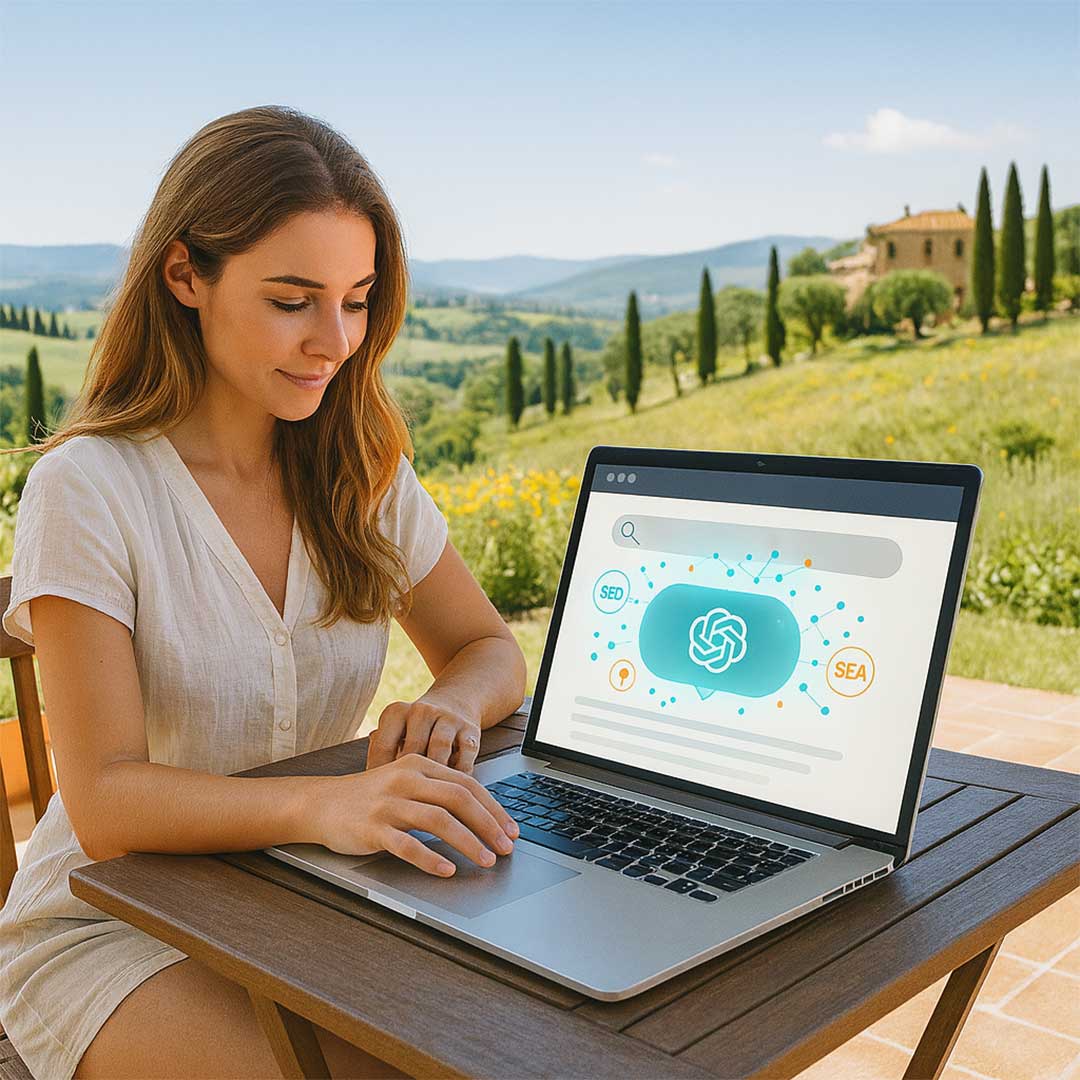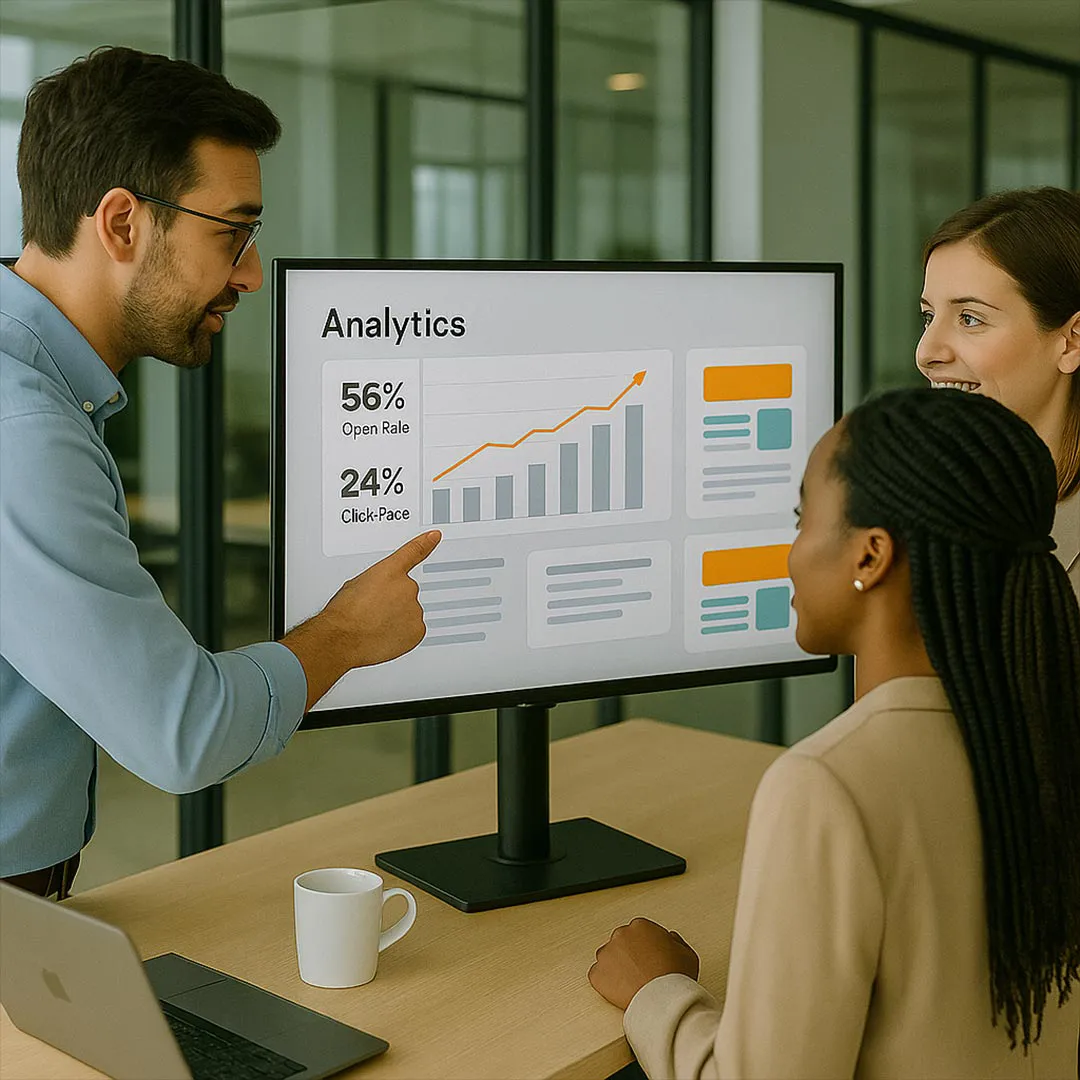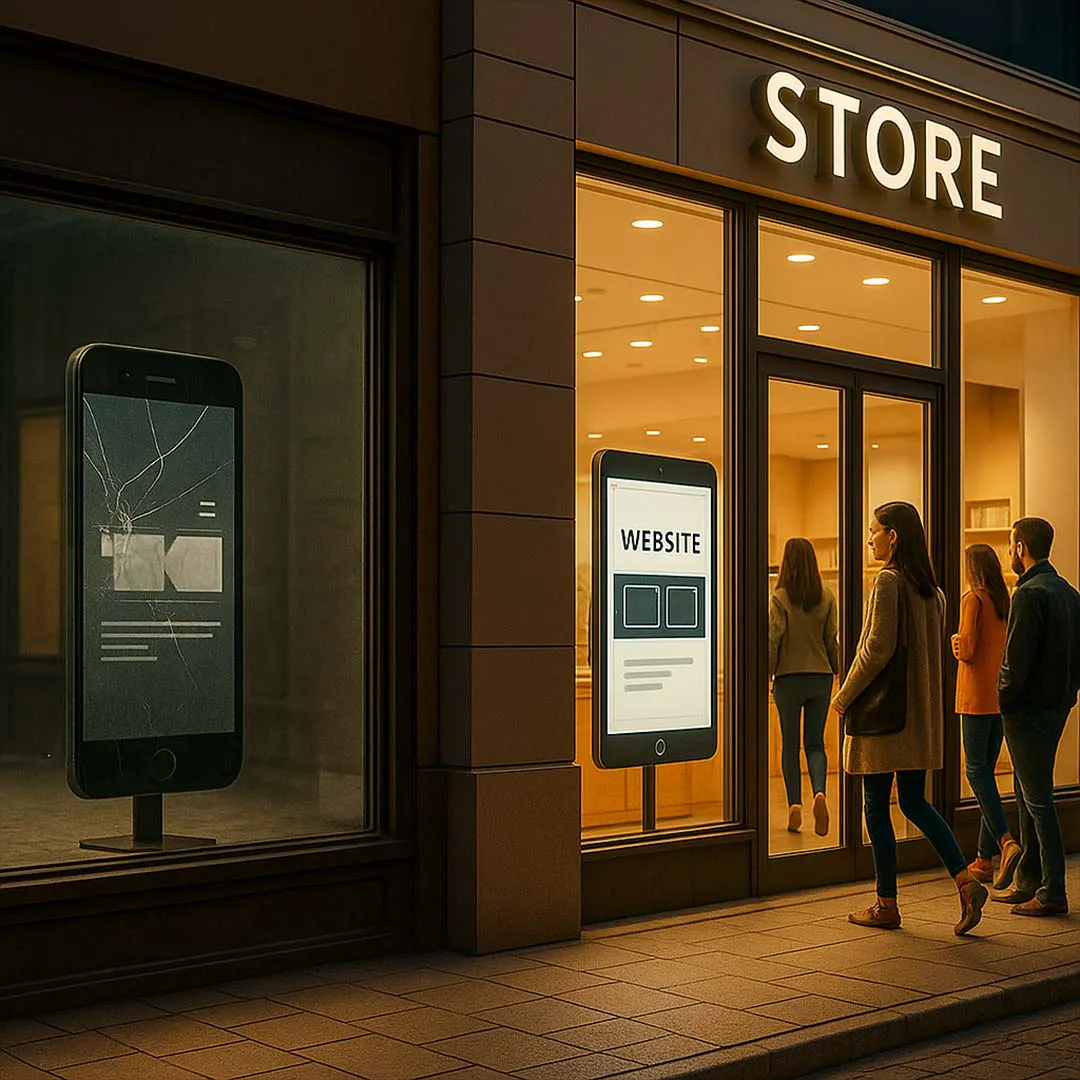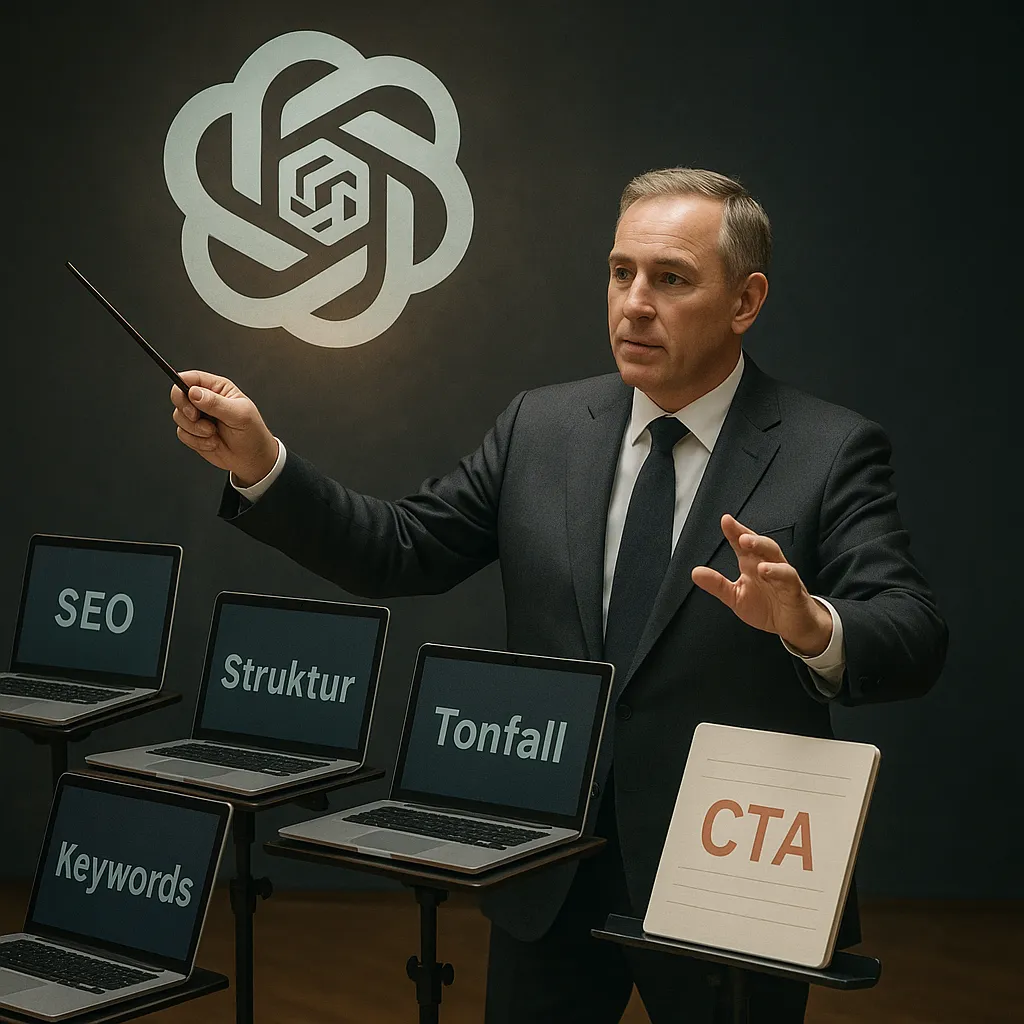
ChatGPT Atlas: How AI browsers could change SEA and SEO
27. October 2025
ChatGPT Atlas changes how you are found online. The new AI browser makes understandable and trustworthy content crucial for SEO and SEA.
Overview
- ChatGPT Atlas integrates AI directly into web search and fundamentally changes SEO and SEA.
- In the future, AI will evaluate the comprehensibility, structure, and trustworthiness of your content instead of traditional rankings.
- Atlas marks the beginning of a new era in online marketing and calls for adapted strategies.
Imagine opening your browser – and your search query is answered directly by an AI before you even click on a website. That’s exactly what becomes reality with ChatGPT Atlas. The new AI browser from OpenAI integrates ChatGPT directly into web navigation – fundamentally transforming SEO and SEA.
For you as a marketer or small business, this means the way content is found, evaluated, and consumed is undergoing a major shift. Traditional Google rankings are losing influence, while new criteria like Generative Engine Optimization (GEO) are gaining importance. In this article, you’ll learn how to adapt your marketing strategy to the era of AI browsers – and why Atlas is more than just another tool.
What is ChatGPT Atlas?
ChatGPT Atlas is an AI-based web browser built on Chromium, with ChatGPT deeply integrated into every interaction. You can ask Atlas questions, summarize texts, fill out forms, or compare products – all directly while browsing.
The most important features:
- Real-time summaries and insights while browsing
- AI-powered automation of tasks like writing, researching, or comparing
- Integrated memory for personalized support
- Focus on data privacy, transparency, and control
Atlas is more than just a browser – it's a new interface between humans, AI, and the internet.
Why is ChatGPT Atlas important?
ChatGPT Atlas is changing not only how you find information, but also which content becomes visible at all. Search engine optimization is evolving into Generative Engine Optimization (GEO).
This means you're no longer optimizing just for Google, but also for AI systems that summarize, interpret, and cite content. Websites that offer clearly structured, trustworthy, and semantically precise content have a decisive advantage here.
At the same time, the user journey is shifting: instead of clicking on search results, many stay directly within Atlas – the classic "zero-click" phenomenon. For you as a marketer, this means you need to learn how to become visible within the AI answer.
How ChatGPT Atlas works in practice
Step by step: Optimizing SEO and SEA for Atlas
- Create structured content: Use schema markup, FAQ formats, and clear hierarchies so the AI can understand your content.
- Strengthen trust signals: Show expertise, authority, and reliability – for example through author attribution, sources, and brand reputation.
- Question-based content design: Answer specific questions precisely. AI systems prefer clear, explanatory structures.
- Write short and context-rich: AI reads differently than humans – it needs clear connections, not flowery language.
- Keep data consistent: Ensure that name, address, opening hours, and product information are consistent across all systems.
Tools and methods for GEO optimization
- Google Search Console & Bing Webmaster Tools: For technical monitoring and structured data validation
- ChatGPT & Perplexity: To test how AI interprets your content
- Schema.org Validator: Checks markup for better readability by generative systems
- SEO tools like Ahrefs or Semrush: For traditional keyword and backlink analyses
| Strategy | Goal | Benefit |
|---|---|---|
| Schema markup | Structure for AI | Better AI-Visibility |
| FAQ blocks | Answer questions specifically | Win featured snippets |
| Entity Building | Strengthen brand authority | Higher AI citations |
| Content chunking | Divide text into logical sections | Better AI processing |
| Local SEO data | Increase regional relevance | Improve Atlas positioning locally |
Opportunities and risks of ChatGPT Atlas
What opportunities does Atlas offer?
- Increased visibility through structured content: Those who understand GEO can position themselves within AI answers.
- New advertising formats: AI-powered ads and context-based offers are replacing traditional banners.
- Direct customer dialogue: Atlas enables conversational marketing and personalized communication.
What are the risks?
- Fewer clicks on websites: Zero-click information reduces organic traffic.
- Unclear measurability: AI-generated interactions are harder to track.
- Dependence on AI interpretations: Content may be distorted or presented in a shortened form.
Short FAQs:
How does GEO differ from SEO?
GEO optimizes content for generative AI, not just for search engines.
Is classic SEO becoming obsolete?
No, but it will be part of a broader strategy focused on AI comprehensibility.
How can I test GEO?
Check whether your content appears as a source in ChatGPT, Perplexity, or Gemini.
The future of ChatGPT Atlas
The launch of ChatGPT Atlas marks the beginning of a new era: Agentic Computing. AI tools will no longer just assist, but act independently – for example, by booking appointments or purchasing products.
For online marketing, this means a fusion of SEO, SEA, and automation. Websites must not only be found but also understood and executable.
Future trends:
- AI-first content: Texts are written directly for AI readers.
- Conversational commerce: Sales emerge from dialogues instead of clicks.
- Data privacy and transparency: Trust becomes a key ranking factor.
Conclusion
ChatGPT Atlas marks a turning point in digital search. If you adapt your strategy, you can remain visible in this new AI landscape.
Focus on clear structures, GEO-ready content, and strong trust signals. The shift may seem complex – but those who act early gain a crucial advantage.
If you want to optimize your website for ChatGPT Atlas, we’re happy to support you. Schedule a free consultation about our online marketing services.
Our blog
Latest news
With our blog, you are always close to our work, our current projects and the latest trends and developments in web and print.
Any questions?





